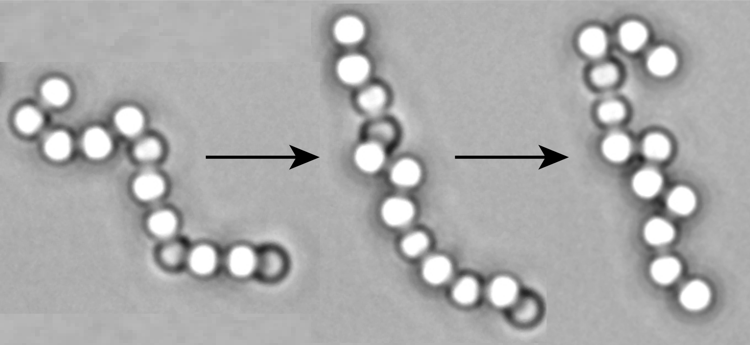 A goal of colloidal self-assembly is to fabricate in bulk complex three-dimensional structures that current manufacturing methods cannot produce. One way to assemble such a material is to take a flexible polymer made of colloids and ‘fold’ it into a designed configuration, just like polypeptides fold into proteins. This requires a flexible colloidal polymer.
A goal of colloidal self-assembly is to fabricate in bulk complex three-dimensional structures that current manufacturing methods cannot produce. One way to assemble such a material is to take a flexible polymer made of colloids and ‘fold’ it into a designed configuration, just like polypeptides fold into proteins. This requires a flexible colloidal polymer.
Here, we control the valence of DNA-functionalized emulsion droplets to make flexible colloidal polymers. We examine their conformational statistics to show that they are freely-jointed. We demonstrate that their end-to-end length scales with the number of bonds in agreement with 2D Flory theory, and that their diffusion follows the Zimm model. In future work, we will investigate the folding of these polymers, allowing us to both learn about protein folding and fabricate complex colloidal structures.